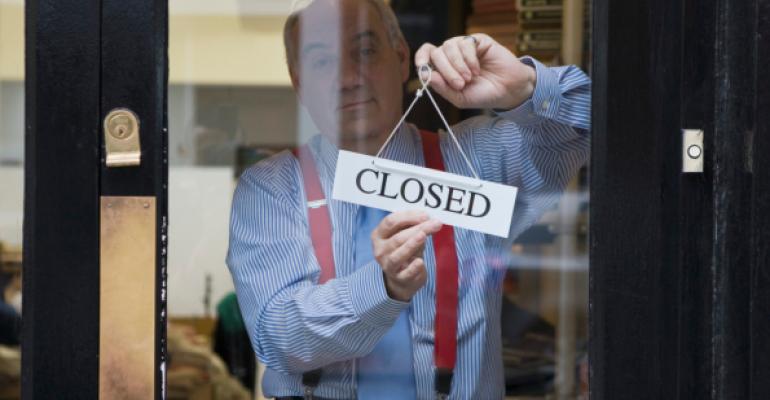By Mark Palmerino
Take a quick look at the financial headlines on any given day. It’s hard not to get the impression that large, multinational companies are the engines that makes the U.S. economy go. It’s easy to understand why. After all, the likes of Apple, Amazon and Microsoft generate billions in revenue and are common holdings for investors, so it’s only natural that the media would shower firms such as these with outsized attention.
But the love affair with big names masks the fact that small business drives much of the nation’s economic activity. According to a recent U.S. Census Bureau report, there are nearly 30 million small businesses in the United States, comprising over 99 percent of all employer firms, half of the workforce and 60 percent of the net new jobs. Heavyweights might get clicks, but the story of business in America is small business.
Most advisors have small business owner clients—or, at the very least, covet the opportunity to work with them. While there is a range of important factors that go into serving small business owners and their families effectively, perhaps none more so than helping them prep their business for a sale.
For many, this is their most valuable asset, representing, if not their entire retirement plan, a significant portion of it. The stakes may not be quite as high for other small business owners, but that doesn’t make an advisor’s obligation to these clients any less meaningful.
The following are four keys to think about when shepherding small business owners through a sale.
- Start early. Selling a business doesn’t happen overnight. It’s a process that typically takes years and often hinges on firming up a business owner’s individual financial planning. For most clients, the fundamental questions are “can I afford to do this?” and “when?”’ A review of their retirement, investment and cash accounts will invariably reveal the answer. For others, it’s not a question of “if,” because they clearly have the assets. But maybe they have to scale back their current lifestyle by downsizing their sizeable home, selling a vacation property or relinquishing a country club membership—perks that were affordable on a $500,000 salary but will become an albatross once that salary goes away.
- Set expectations about what their business is worth. Advisors have to work to temper the expectations of small business owners, who often have an inflated view of how the market will value their business. For instance, they sometimes assume that a buyer will give them three-to-five times EBITDA, which traditionally has been what privately held small businesses could reasonably expect in a sale. But it’s not always that simple. For an illustration, think about a medical, dental or, frankly, a financial services practice: 65-year old practitioners on the brink of retirement frequently have 65-year old patients/clients who are on the brink of retirement. In other words, these are depreciating assets, meaning there could be a sizable gap between what the business is worth on paper and what a buyer is willing to pay for it. This is the reason that, in an ideal world, business owners should not be overly reliant on a potential liquidity event to fund their retirement.
- Keep essential equipment and facilities up to date. A good blueprint for maximizing value is building a turnkey operation that allows a new owner to step in without having to incur any significant capital expenses. What this essentially means is that sellers shouldn’t provide would-be buyers any opening to claim during sale negotiations that vital equipment and facilities are outmoded, thus providing them leverage to come in with a low-ball offer. Clients, though, should know that it’s not necessary to spend extravagantly to make a series of wholesale changes all at once. Once a timeline for a sale has been established, simply advise them to make incremental improvements to keep important hard assets current.
- A sale doesn’t always mark the end of the road. Condition clients for the possibility that they could be asked to stay on temporarily after a sale has been executed, even if it’s in a part-time role. This is particularly the case for owners of professional services businesses like legal, medical, dental and financial advisory practices. As everyone in this industry can appreciate, perhaps the biggest concern buyers of these types of businesses have is that the existing client relationships will wither away once ownership changes, greatly diminishing the value of their newly acquired asset. In certain circumstances, sellers should therefore anticipate less upfront offset with incentives that reward them for acting as a bridge to their longtime clients.
Mark Palmerino is a partner at CCR Wealth Management, a Boston-area based firm with approximately $1.2 billion in assets under advisement.





